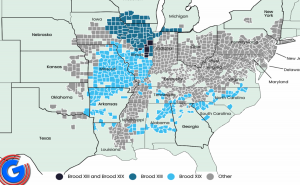This summer marks the seven-year anniversary of the last time the federal minimum wage was raised, from $6.55 to $7.25 an hour. Meanwhile, the buying power of those dollars has fallen by 10 percent because of inflation, that comes from a new analysis from the Economic Policy Institute.
The study's author, David Cooper, senior economic analyst with the Economic Policy Institute, said until the 1960s the wage was raised at roughly the same pace as increases in worker productivity.
"Had that trend continued since 1968 and we had continued to raise the minimum wage pretty regularly every year, we would have a minimum wage today of close to $19 an hour," he said.
The Democratic Party recently added a $15-an-hour minimum wage to its platform, and Donald Trump has also come out in favor of an increase. According to the National Federation of Independent Business, raising the federal wage isn't possible for all businesses, especially in the South and parts of the Midwest. At $7.25 an hour, Tennessee's minimum wage matches the federal minimum, although some states have opted to increase the hourly rate for workers.
Cooper's study also found that if the wage had kept pace with the average growth for a typical worker's income, today's minimum wage would be almost $12 an hour.
Groups opposing initiatives in several states to pay workers at least that amount claim the move could lead to thousands of jobs being cut. Cooper disagrees.
"The effect of increases in the minimum wage on employment is probably the most studied topic in all of labor economics," he added. "Modest increases in the minimum wage have little to no effect on employment, I mean, that debate is basically settled."
Cooper said raising the wage floor also helps middle-class workers get paid more, and has a positive impact on local economies.












